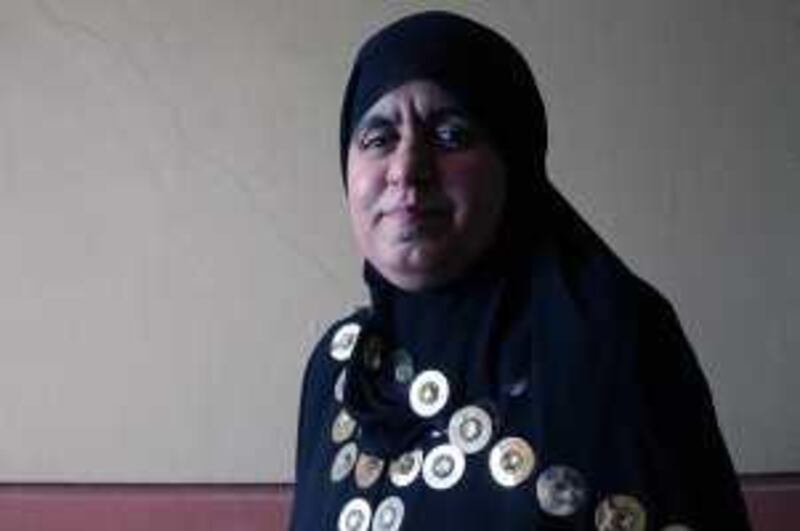DUBAI // Awatif Akbari has a high-powered job that has earned her numerous awards and national recognition. But when it comes to organising her finances, the 33-year-old Emirati still needs her father by her side.
It is not that she is bad with money. Ms Akbari is blind and, she says, banks are denying her the financial independence that she craves. Whenever she wants to withdraw a sizeable sum of money from a cashier, or apply for a banking service, she needs her father's signature to proceed. "I am 33, I am working, I finished my studies, have a master's degree in public administration and I have my own salary," said Ms Akbari, a manager in the education sector.
"I am the head of an operational unit, and yet the bank treats me like a baby and not an adult." Ms Akbari said she was not allowed to open a current account, only a savings account. When she requested a credit card she was initially refused, and was only given one when she returned to the bank with her father. "When I travelled to the US, I needed a credit card, but they would not allow me to have one," she said. "I challenged the bank. They wanted to know how I would know the amount I was being charged. I got very upset."
Ms Akbari is not alone. Mohammed al Ghasli, a 30-year-old journalism student from Dubai, has been blind since he was six and has faced similar problems. "I have an account, but my father has to come with me," Mr al Ghasli said. "I have an ATM [automated teller machine] card now, but I had to take my father with me to sign forms. "If I want to transfer money or make an application for a credit card, in the US or the UK they have Braille or electronic forms, but here I have to bring my father to sign for me."
Abdul al Kumait, a Dubai-based lawyer, has six partially sighted Emirati clients seeking his counsel on ways to request legislation that will improve their situation. "For a long time, I have been fighting for so many banks to arrange an ATM for the blind," he said. "There is no federal law about this at the moment, and when I have spoken to two or three individual banks they have told me that it costs too much."
In Kuwait, Mr al Ghasli came across a "speaking" ATM, and suggested that banks here should invest similarly. Provisions differ from bank to bank. Belinda Scott, the senior corporate social responsibility officer at the National Bank of Abu Dhabi, said visually impaired customers could open savings accounts, with a "stringent level of signatory requirements" for their security. Barclays offers automated telephone banking as well as fingerprint authentication on ATMs. Its Premier and Premier Life customers are offered "relationship managers" who are "available 24/7 to visit customers either at their home, office or meet them and provide assistance in branch".
Dubai Islamic Bank requires two witnesses for the signing of any transactions between the bank and blind or partially sighted customers, to "serve its customers' interests". While it does not issue any statements in Braille, the bank says it is happy to speak with partially sighted customers and "assist their needs in every possible way". Nazem Fawzi, of the Ministry of Social Affairs' disabilities department, said it hoped to prepare guidelines on banking for the blind and partially sighted.
Adil al Zamar, the vice president of the Emirates Association for the Blind, would like to see Braille or audio services introduced. While he does not doubt that policies regarding witnesses are designed to protect customers, he feels that a clear policy is needed. In Britain, for example, the Disability Discrimination Act requires that people with disabilities have access to the same goods and services as non-disabled people.
Helen Deerman, the campaigns officer for the Royal National Institute for the Blind, said: "I think the banks realised that it would be seen as unacceptable to impose restrictions on financial services. "It is about striking a balance of trying to protect but also allowing them access." @Email:loatway@thenational.ae






